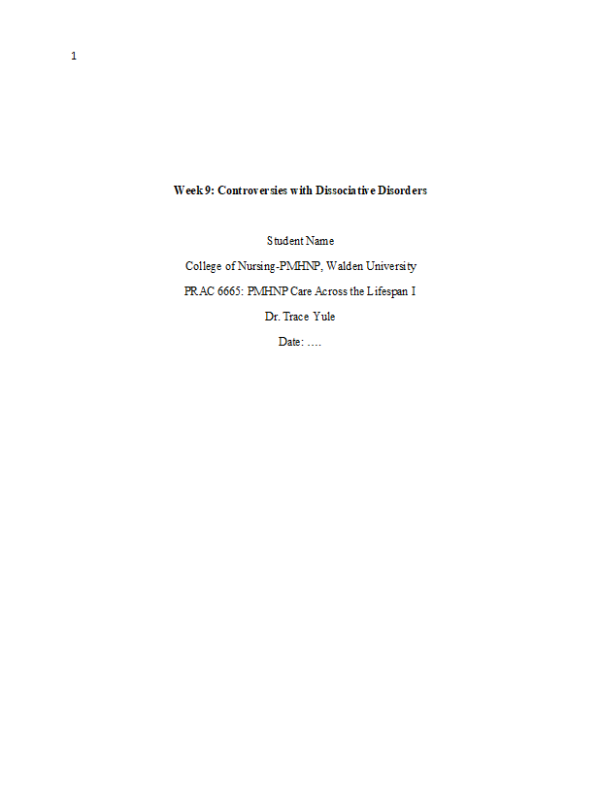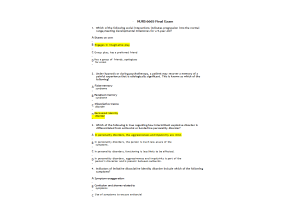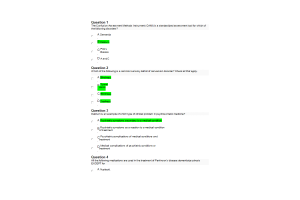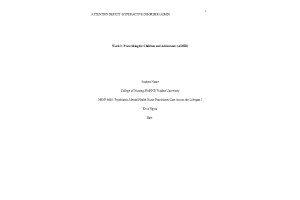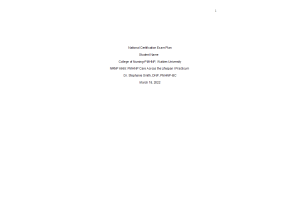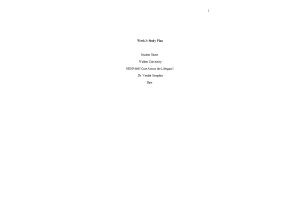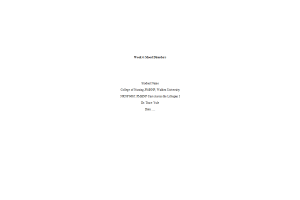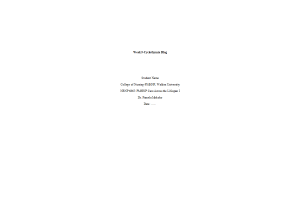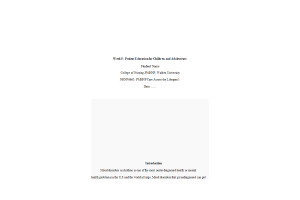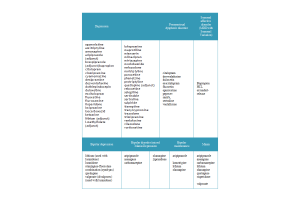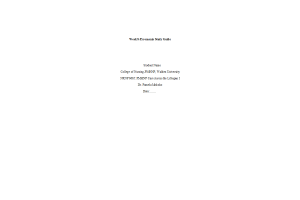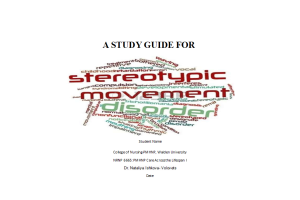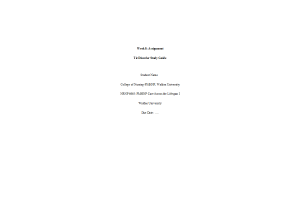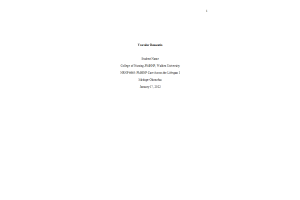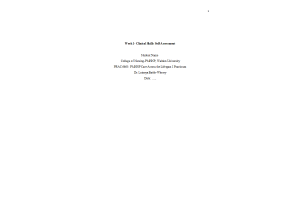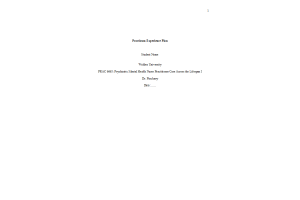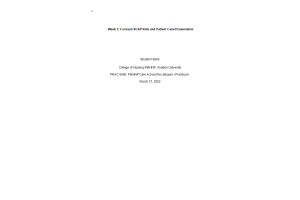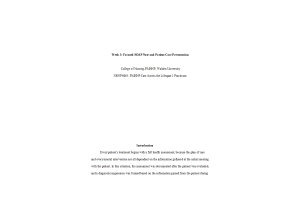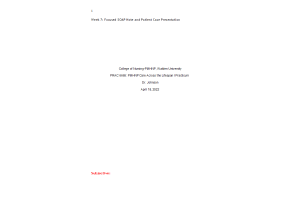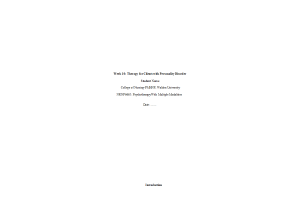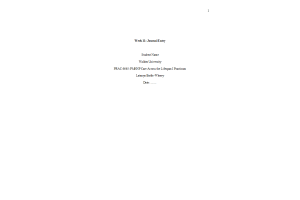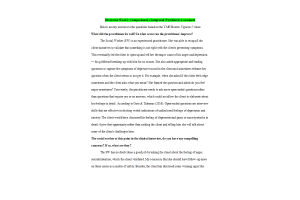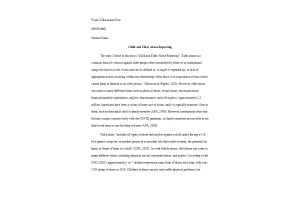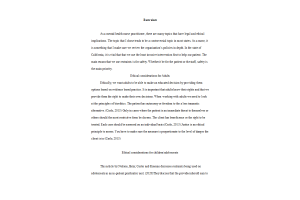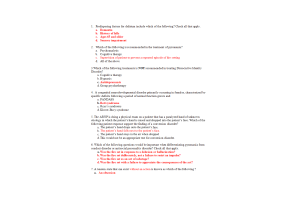NRNP 6665 Week 9 Assignment; Controversy Associated with Dissociative Disorders
- $15.00
Week 9: Controversies with Dissociative Disorders Student Name College of Nursing-PMHNP, Walden University PRAC 6665: PMHNP Care Across the Lifespan I Dr. Trace Yule Date: …. Dissociative Disorders Dissociative disorders (DD) are a group of disorders that often result from stressful situations, trauma, childhood trauma, or abuse. The disorders include dissociative amnesia, dissociative identity disorder, depersonalization or derealization disorder, and dissociative fugue (Mad Medicine, 2019). These disorders involve a disruption in mental functions such as memory, awareness, perception, consciousness, motor control, and identity, leading to feelings of being disconnected from oneself or disconnected from their environment (Sadock et al., 2015). Dissociating is the body’s physiological and psychological coping response to overwhelming, distressing, and painful trauma (Temple, 2019). There is a great deal of controversy, and ethical conflict regarding DD is due to the lack of scientific literature to support this group of disorders. The following paper will address the controversies with DD and my professional beliefs, strategies to maintain a therapeutic alliance with clients, and legal and ethical considerations. Controversy Associated with Dissociative Disorders Controversy with DD stems from the lack of scientific literature despite the evidence supporting a strong relationship between DD and trauma (Lowenstein, 2018). Lowenstein (2018) and Grande (2018) explain that the controversial debate focuses on whether dissociations result from psychological trauma or something a person has made up with their confabulated trauma memories or is it iatrogenic. Theorists such as Pierre Janet have studied dissociation. Janet described dissociation as an instinctive and adaptive process universal to everyone in traumatic situations (Temple, 2019). His theory was disregarded because of the shift to the psychoanalytic theory in the early 1900s. Many have disputed DD and the concept of dissociation through the years because of the lack of empirical evidence or the lack of ability to replicate previous findings (Lowenstein, 2018; Temple, 2019). Unfortunately, the controversies continue to lead to a lack of knowledge and understanding essential to treat clients with DD. Evidence shows a strong prevalence of DD in those with post-traumatic stress disorder (PTSD), obsessive- compulsive disorder, and ........... Continue
